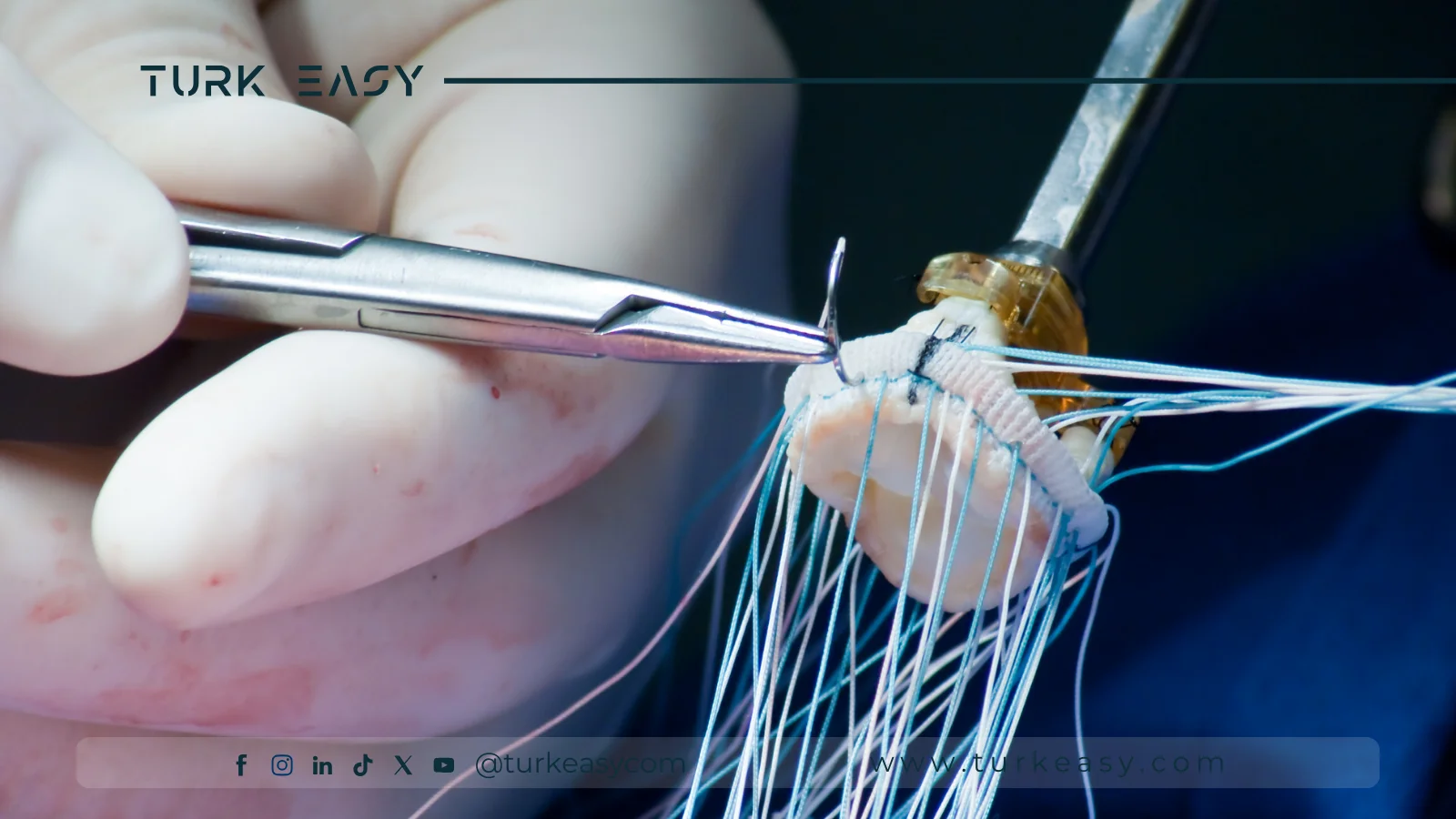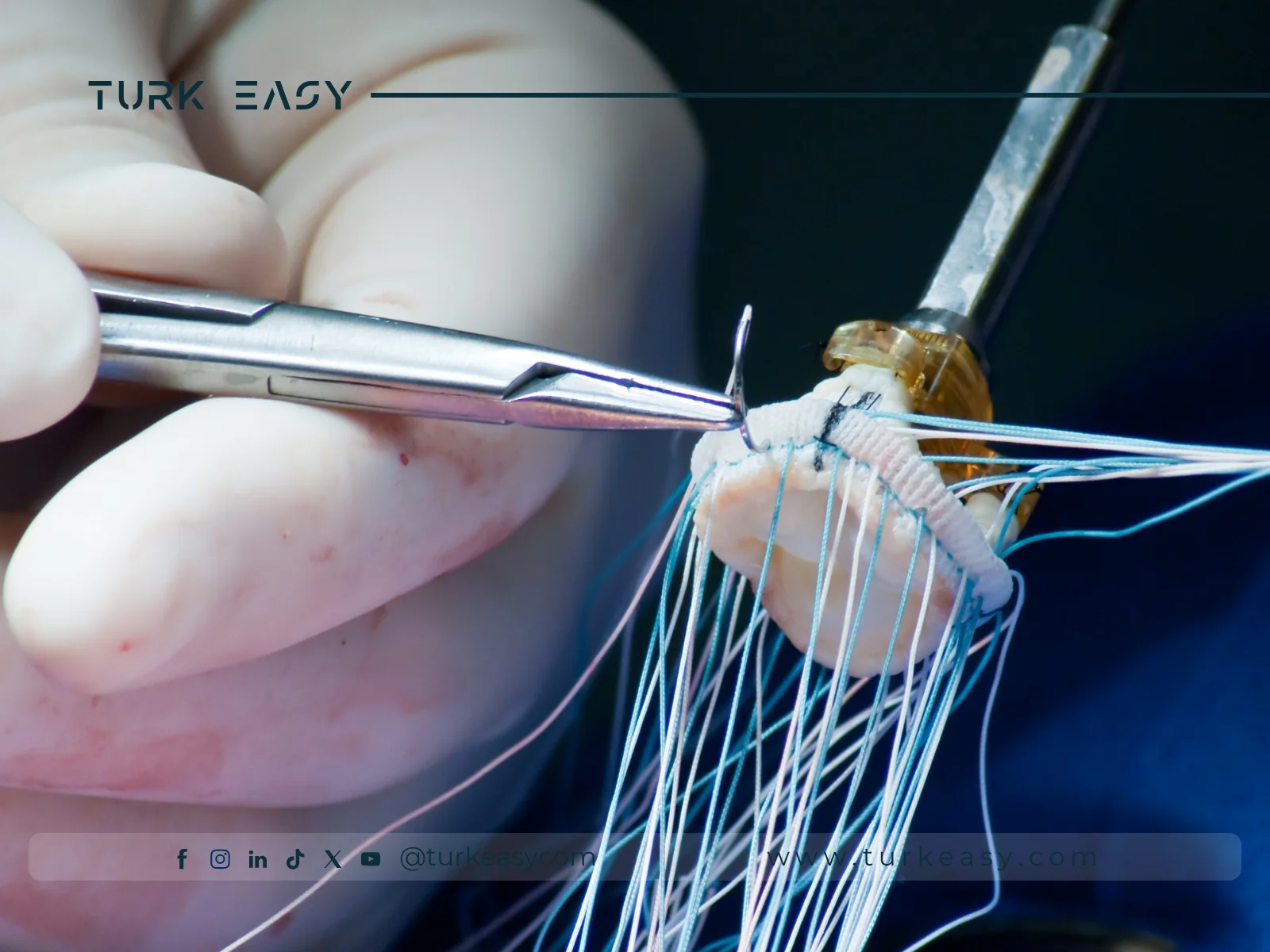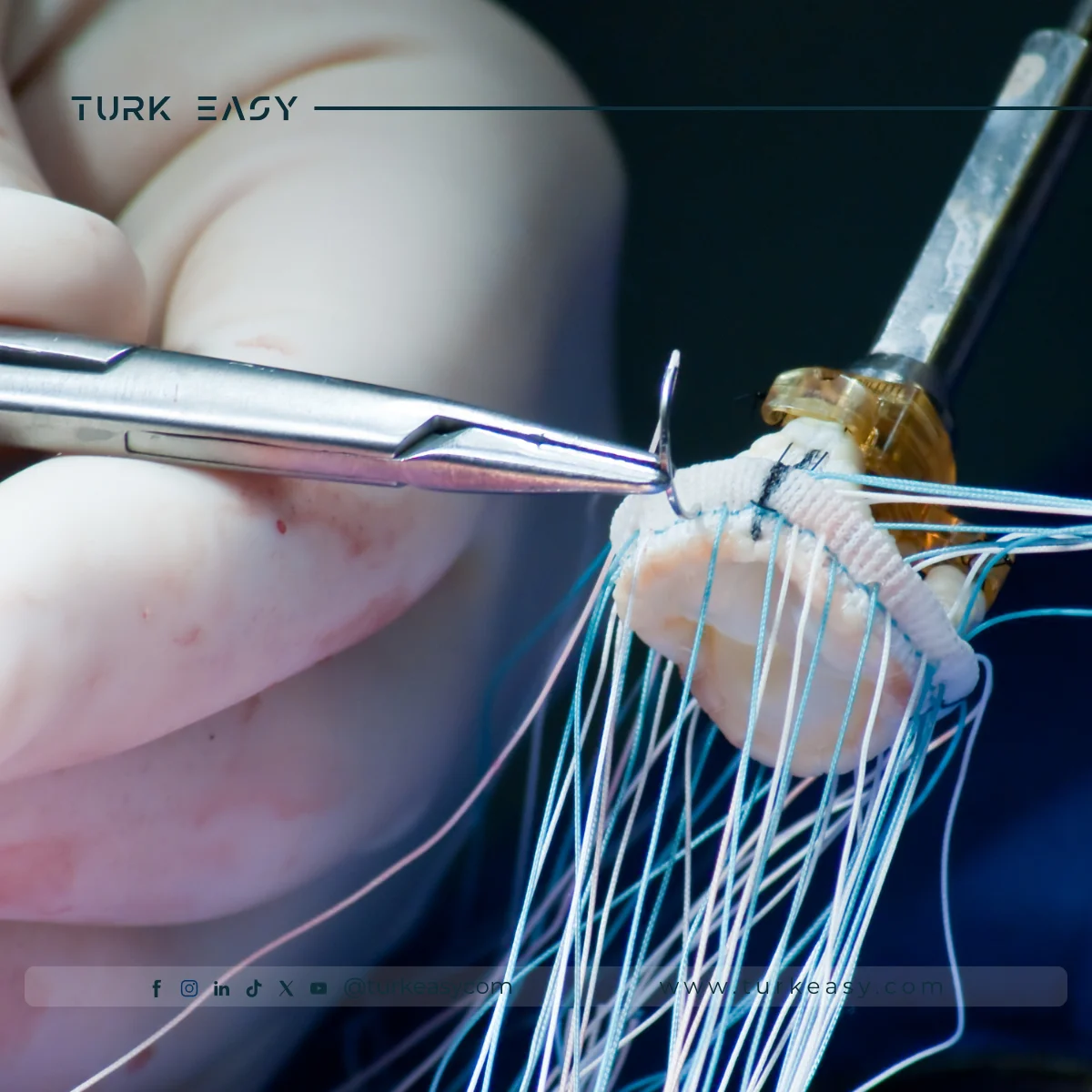Heart Valve Replacement
Heart valve replacement surgery is among the fundamental heart surgeries. There are different types of valves inside the heart muscle, and one or more valves may be affected by defects either due to genetic factors or acquired environmental factors. The patient's condition can be diagnosed through various technological means, and treatment depends on the defective valve's condition, severity, and type of disease. Heart valve replacement surgery may be a primary therapeutic option if the defect significantly affects the patient and causes serious complications.
What are the steps of heart valve replacement surgery?
Before the Surgery
Most patients experience severe stress before undergoing heart valve replacement surgery, which is natural. It is the treating physician's responsibility to alleviate this by reassuring the patient, explaining the procedure steps, and informing the patient that success rates are high during this period.
The patient goes to the treatment center two days before undergoing heart valve replacement surgery for necessary tests and examinations. The surgical team answers all the patient's inquiries, clarifying any restrictions.
During the Surgery
Heart valve replacement surgery typically lasts between three and five hours, varying from one procedure to another, depending on the patient's condition and the valve's location to be replaced. An hour before the patient enters the operating room, the doctor administers a limited dose of sedative medication to induce drowsiness. Then, the patient is transferred to the main operating room on a movable bed. The anesthesiologist injects the patient with an appropriate amount of anesthesia to prevent any pain during the procedure.
The surgical team uses an artificial heart device to replace the natural heart during the operation. This is followed by the chest being opened and the fatty layer and tissues beneath the skin being displaced. Then, the chest bones are incised to allow the surgical team access to the heart muscle, after which the heart valve is replaced. Once the surgical team finishes replacing the heart valve, the artificial heart pump is removed, and the heart is returned to its natural position, then the chest is closed with stitches.



